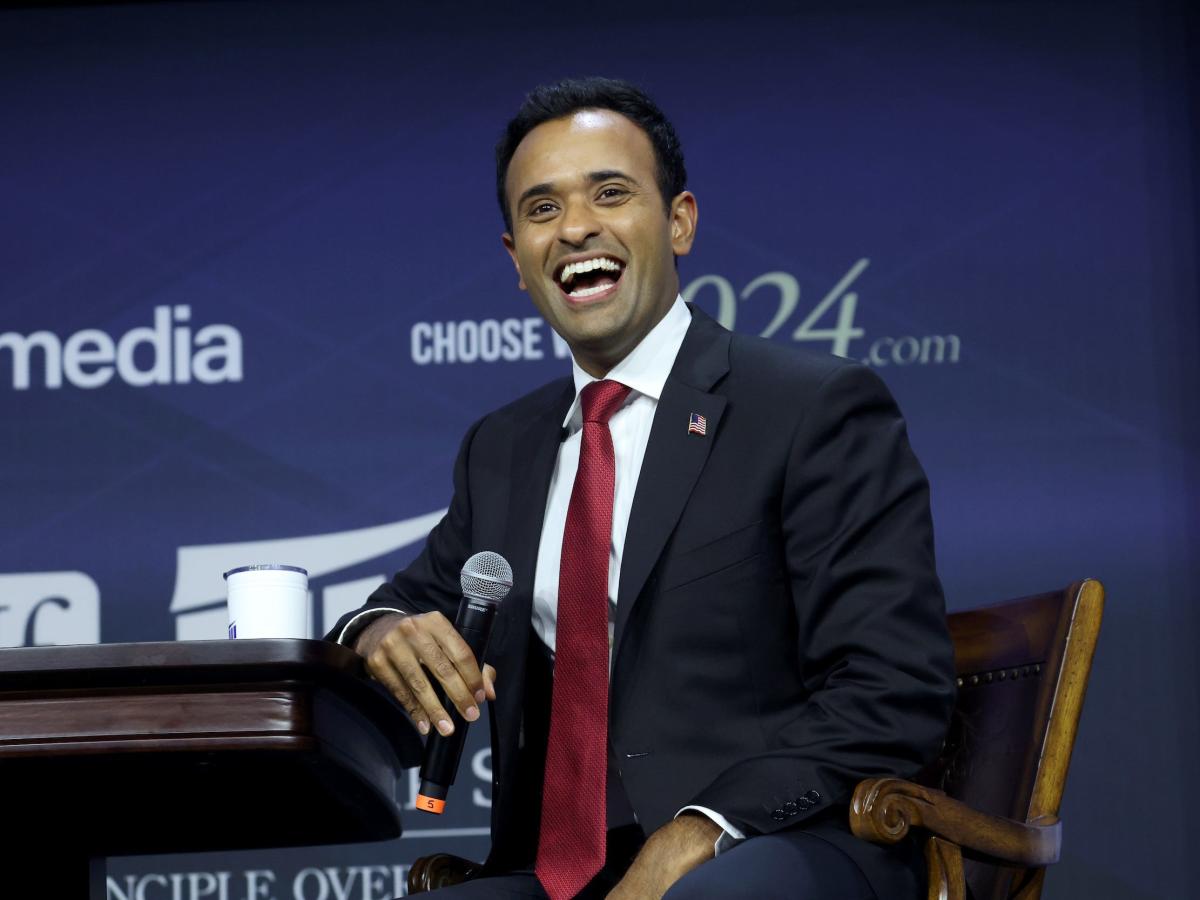
-
Roche acquires a bowel-disease treatment from Roivant for over $7 billion, as reported by the Wall Street Journal.
-
Roivant receives a windfall of $5 billion from the sale, after having invested only $15 million in its development.
-
Pfizer originally transferred it to Roivant for free in December of last year.
Roche acquired a bowel-inflammation treatment, resulting in a significant windfall for Vivek Ramaswamy’s company Roivant, according to a report by the Wall Street Journal.
Pfizer decided to out-license the drug 11 months ago to avoid research and development costs. Roivant’s expenses for developing the treatment, which targets an inflammatory protein called TL1A, amounted to just $15 million.
Roivant will now receive $5 billion in cash through the Roche deal.
Pfizer noted that the agreement with Roivant was part of its research and development prioritization strategy and that it will still benefit from the 25% stake it retained, along with full rights to the drug outside the US and Japan.
In fact, Pfizer can expect to receive about $1.4 billion from Roche’s acquisition, bringing the total value to $7.1 billion for Telavant Holdings, the developer of the treatment.
When asked for comment, Pfizer stated, “We are very pleased with our TL1A/Telavant partnership, and we believe that shareholders were well served.”
The company also mentioned that the deal allowed it to allocate resources to other high-priority programs while still retaining royalties from US and Japan sales, as well as the 25% stake and rights outside the US and Japan.
“Together, this partnership enabled us to preserve over 50% of the total value of TL1A without any additional R&D expenses,” Pfizer said in a statement. “Considering it is a Phase 2 program, we believe this is a prudent move for Pfizer shareholders. Additionally, Pfizer currently maintains 100% ownership of a next-generation p40/TL1a bispecific candidate through [phase 1]. Roche has the option to enter into an agreement for global development of that asset with a 50/50 cost share and co-commercialization rights with Pfizer prior to [phase 2] (expected in 2025).”
Although the treatment has yet to receive approval from the Food and Drug Administration, the popularity of anti-TL1A therapies surged after Pfizer relinquished its license.
Within six days of the biotech giant announcing its deal with Roivant on December 1, shares in rival company Prometheus Biosciences skyrocketed due to positive studies on its own similar drug, leading to its subsequent acquisition by Merck for $10.8 billion, according to the Journal.
Furthermore, this month saw the announcement of a $1.5 billion collaboration between Sanofi and Teva Pharmaceuticals for further TL1A treatment.
While the compound holds potential for treating conditions such as ulcerative colitis, its use in other areas like dermatology or gynecology adds to its appeal for major pharmaceutical companies.
“This molecule clearly has the potential to be a blockbuster in the $15 billion US market for [inflammatory bowel disease],” stated Roche chief Teresa Graham to the Journal.
Original article published on Business Insider


